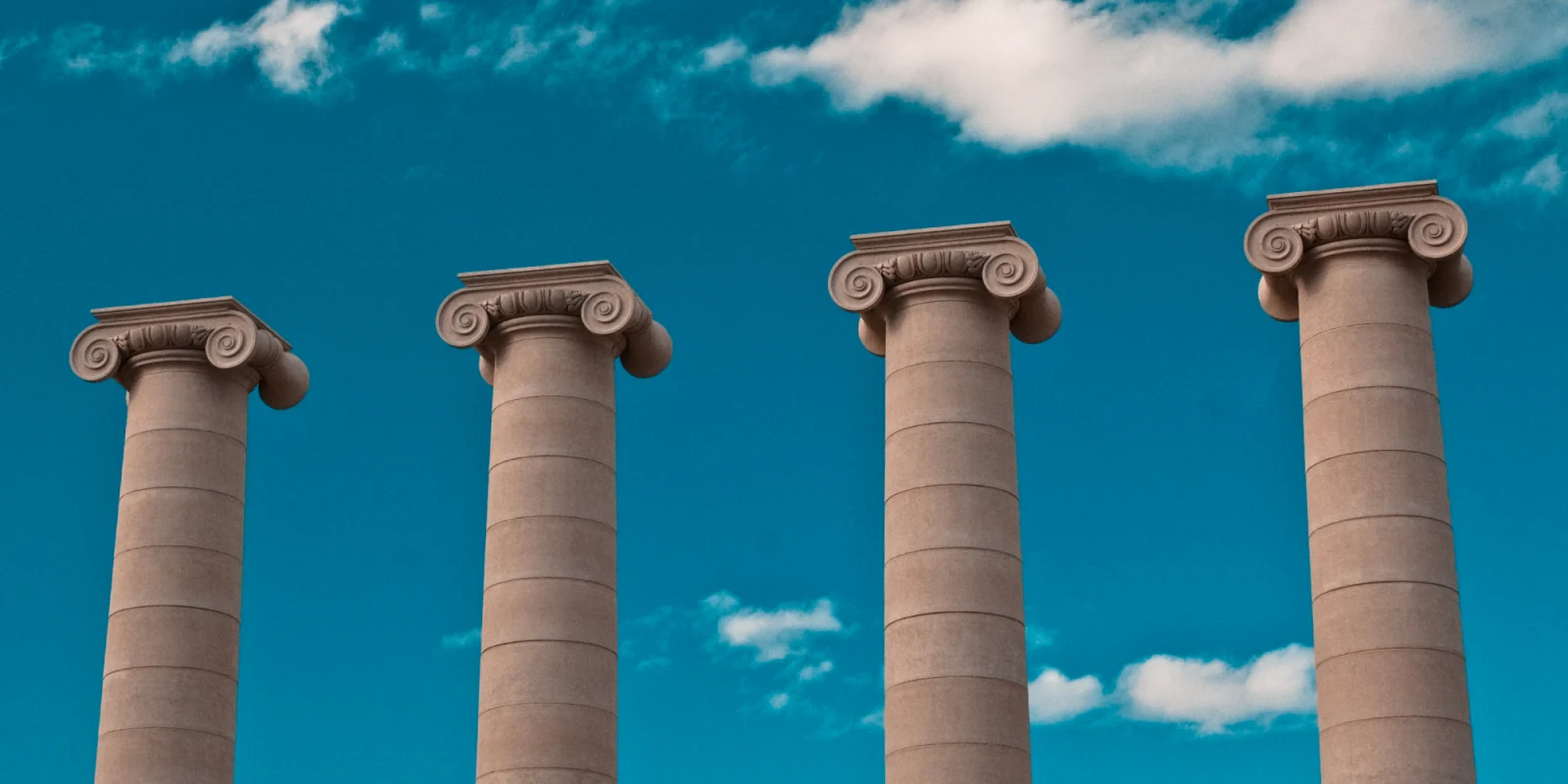
When I chose to become a doctor, I knew I was going to dedicate myself to this profession — to providing relief from illnesses and maybe even curing them. What I did not realize at that young age was that the mission would require 100% of my dedication, sometimes even 200. As I ventured onward, I knew that I would tenderly care for my commitment but I did not realize that my undivided attention would entail removing attention from other parts of my life. Looking back 42 years after taking the Hippocratic Oath, I find myself reflecting on the themes of my life. What have I learned in 42 years? What have I gained and what have I lost? What would I tell myself 42 years ago?
Four words: carve, curiosity, courage, and confidence.
1. Carve: My nephew was born in my arms and grew up in front of me. When I migrated to the United States, he was one of the people I missed the most. He was like my child, except not. One unfortunate day, he died — at the tender age of 15. The loss I felt was massive. Yet, my dedication to my patients here kept me from attending his last rites. To this day, I am disappointed with my lack of attention to the needs of my grieving family (and myself). Fast forward 15 years and my sister is gravely ill. History repeats itself: I am challenged with the balance of visiting her for the last time and sitting for my ABIM recertification. I found myself debating the impact of my long-distance travel on my performance, on the boards against the importance of saying goodbye. As I thought about it, I reflected upon the passing of my nephew and the sense of loss I experienced. That gap in my soul remains to this day. With my family’s support, I made the decision to visit with my sister a mere two weeks before my exam. Upon my return, I felt comforted, healed, and focused. Why? Because I knew that I did what my heart desired, what my mind instructed, and what my soul needed. I carved time for myself and the ones I loved.
Carving out time for each component of life is very important. We have three missions in this life: our medical mission, our personal mission, and our spiritual mission. The medical mission is dictated by our profession; it enforces upon us the responsibility to continue to expand our knowledge and skills. Our personal mission is to spend quality time with loved ones, improve our personal health, or pursue a non-professional interest. We all agree that lifestyle changes are important to combat the epidemic of metabolic syndrome, obesity, diabetes, heart disease, and depression but while we apply this to our patients, we often fail to apply it to ourselves. We fail to carve time for our physical and mental health. We need to practice what we preach. Third and finally, our third mission is spiritual. This mission is to be at peace with our accomplishments, and find the balance between our profession and personal missions.
2. Curiosity: Forty-two years ago, as an intern, I admitted a patient with altered mental status. After a grueling two days running manual labs, my team realized our patient was uremic. (Yes, in those days, two days was quick in remote parts of India.) Serendipitously, one of our professors was returning from Chicago with a new concept: a dialysis machine. I happened to be the first intern with the dialysis machine on that unit — I had a machine, a patient, and a rapidly growing curiosity for technology. The dialysis machine was the prestigious Kolff-Travenol dialysis machine or, as I called it, “the washing machine.” It required 10 hours of manual dialysis per day, and 10 hours is a long time. My professor virtually promised me that the patient would survive, but I was not so sure (although curious, I remained skeptical of the washing machine’s power). To my shock, the patient survived and I learned that the washing machine was so much more than it seemed. The details of the physics and chemistry behind its workings were magical. My professor continued to encourage my involvement in kidney disease research and fostered my writing of novel cases of kidney disease in previously undocumented scenarios. My small curiosity about the washing machine was the beginning of my desire to explore novel therapies and regimens, a desire that fuels me to this day. Without curiosity, I may never have ventured into the field of nephrology. That tiny spark in remote India turned into a decades-long career.
Curiosity allows us to maintain a questions in our mind: How and Why? Sometimes, we may find that the answer is in mundane or even obscure places, and sometimes the answer is found quickly or is delayed. But at the end of the day, curiosity — asking the questions — is what leads us to seek better treatments, better technology, and better outcomes for our patients and communities. Curiosity may even maintain the initial charm of medicine that enraptured us all.
3. Courage: I realized one day that I would eventually have to leave the comfort of all that I knew. I desired something new; I would have to leave academic medicine. I wanted to see what I was made of. Could I leave the sheltered environment of academic medicine and develop a clinical practice that excelled in patient care and a tumultuous environment? Could I develop a model where I cared for my patients and provided for my family in a more comprehensive manner? Could I do it? Could I leave behind what I knew for 20+ years and venture into a brave new world? Could I? Yes. And so, I did.
Looking back 16 years later, I am proud of my accomplishments in this “new world.” I leaned into my leadership skills and my knowledge, I leaned on my family and friends, I found my courage in times of need. I leaned into my passion for teaching, becoming involved in local medical institutes and training programs. In being an educator, I found my interest to learn from and share with learners of all stages renewed. Courage has been a pillar in my professional and personal life — and courage is very important in all of our lives as physicians. Having the courage to take on a challenge can bear great rewards. Without courage, even the smallest of tasks seems mountainous. In the current environment, where priorities and distractions are boundless, we must, as physicians, keep our goals high and not compromise the standard of care we want to deliver. Even if we do not achieve our goals, the path to achievement will likely show us our strength and resolve, something each of us should be proud of. The courage to believe in our dreams and goals will only further our resolve to accomplish our professional, personal, and spiritual missions.
4. Confidence: When I wrote my publications in the past, I was never confident they would be published. But, I had the opportunity to find a great mentor, and I began publishing prolifically. My publications attracted the attention of the World Congress of Cardiology and I was invited to speak at a symposium. I was completely shocked and uncertain about my ability to successfully represent my institution. I was trembling through practice rounds of the presentation with my mentors and supervising physician leaders. But the more feedback I received, the more succinct my presentation became. And still, I was not yet confident that I would give a stellar presentation. One mentor came to me after a regional-level presentation and pointed out that the toughest critique was coming from within. I was my own archenemy. It was this insight that helped me realize that I had the skills and expertise to effectively present my research and represent my institution at the international level. I needed to believe within myself that I had put in the time and that my presentation would be well received.
Like courage, confidence is important if we hope to achieve success, by any definition. Many times, confidence — a word some use interchangeably with “hope” — can help us define and achieve success. Defining our path can be straightforward, but confidence in execution is difficult. Leaning upon support networks can help, but confidence must ultimately come from within — with being true to our values, true to ourselves. If we have confidence, our hearts and souls will respond with the momentum to propel us to success.
When I started my career 42 years ago, I could not have anticipated the twists, turns, and loops my path would take. I have learned a tremendous amount from my colleagues, mentors, family, and friends. For me, 42 years has boiled down to the balance between the four pillars: carve, curiosity, courage, and confidence. Taking the time to define the pillars for myself has been helpful. I hope my experience helps the next generation of physicians as they pursue their professional, personal, and spiritual missions.







